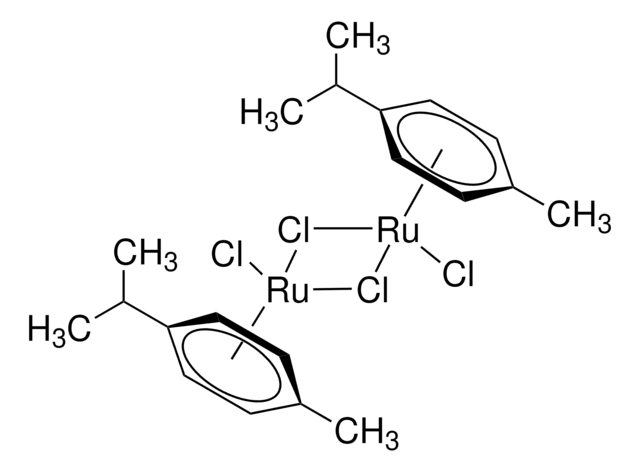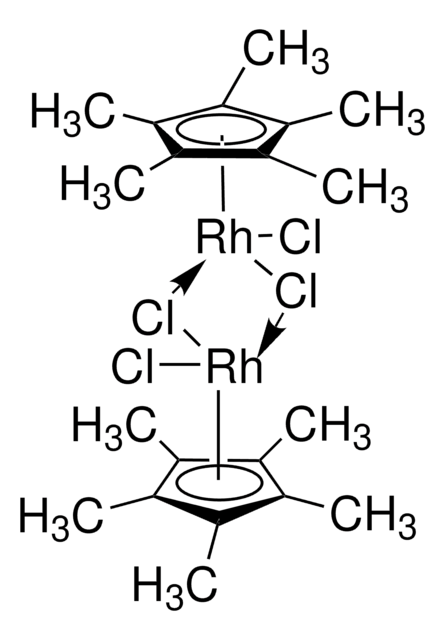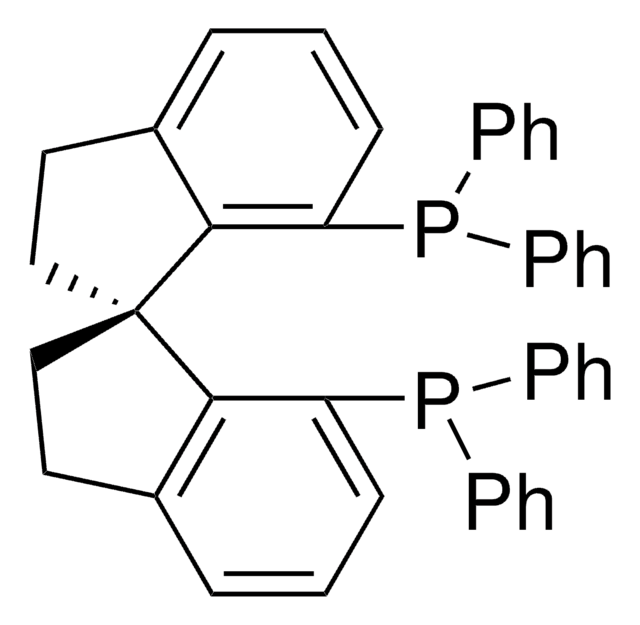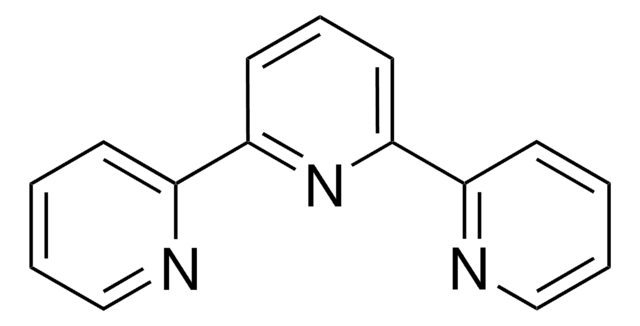About This Item
Recommended Products
Assay
≥95%
form
powder or crystals
reaction suitability
core: palladium
reaction type: Buchwald-Hartwig Cross Coupling Reaction
reaction type: Heck Reaction
reaction type: Hiyama Coupling
reaction type: Negishi Coupling
reaction type: Sonogashira Coupling
reaction type: Stille Coupling
reaction type: Suzuki-Miyaura Coupling
reagent type: catalyst
mp
>300 °C
storage temp.
2-8°C
SMILES string
N#CC.C1(C2=CC=CC=N2)=CC=CC(C3=NC=CC=C3)=N1.[Pd]
Application
Automate your fluorination reactions with Synple Automated Synthesis Platform (SYNPLE-SC002)
related product
Storage Class Code
11 - Combustible Solids
WGK
WGK 3
Flash Point(F)
Not applicable
Flash Point(C)
Not applicable
Certificates of Analysis (COA)
Search for Certificates of Analysis (COA) by entering the products Lot/Batch Number. Lot and Batch Numbers can be found on a product’s label following the words ‘Lot’ or ‘Batch’.
Already Own This Product?
Find documentation for the products that you have recently purchased in the Document Library.
Our team of scientists has experience in all areas of research including Life Science, Material Science, Chemical Synthesis, Chromatography, Analytical and many others.
Contact Technical Service

![1-Chloromethyl-4-fluoro-1,4-diazoniabicyclo[2.2.2]octane bis(tetrafluoroborate) >95% in F+ active](/deepweb/assets/sigmaaldrich/product/structures/206/487/53d52ee5-ef71-4e9a-9bc8-938b68b98d5d/640/53d52ee5-ef71-4e9a-9bc8-938b68b98d5d.png)


![(2R,2′R-(+)-[N,N′-Bis(2-pyridylmethyl)]-2,2′-bipyrrolidinebis(acetonitrile)iron(II) hexafluoroantimonate](/deepweb/assets/sigmaaldrich/product/structures/202/913/41951272-e38c-4f7b-9bf9-6ed9448f4864/640/41951272-e38c-4f7b-9bf9-6ed9448f4864.png)


2 ≥95%](/deepweb/assets/sigmaaldrich/product/structures/276/288/a8ff851d-d6be-43a1-b43f-1438e7b840d7/640/a8ff851d-d6be-43a1-b43f-1438e7b840d7.png)
